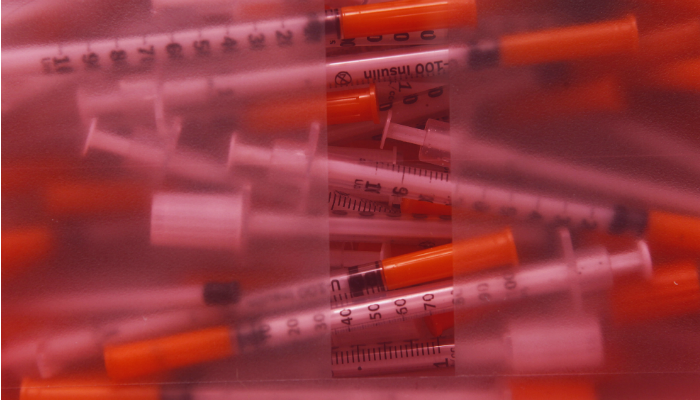Lewiston Maine Syringe Exchange Program

Harm Reduction
AIDS Research Articles and News
Hepatitis C Research Articles and News
Syringe and Needle Exchange Programs
Overview
Originally Published: 06/17/2015
Post Date: 06/17/2015
Similar Articles: See the similar article
by Chooper's Foundation
Summary/Abstract
The Frannie Peabody Center, Grace Street Services and Chooper's Foundation have joined forces to open a Lewiston Maine Syringe Exchange Program.
Content
Lewiston, Maine Syringe Exchange Program
It is a an established fact within the medical, scientific and research communities that Syringe Exchange Programs are the most cost effective approach to reduce the spread of blood borne diseases ( HIV, Hepatitis C, Hepatitis B) associated with intravenous drug users (IDU’s). Acknowledged as a best practice, recommendations for unrestricted implementation of these programs have been repeatedly made over the past fifteen years by the World Health Organization, The United Nations, The Center for Disease Control, The National Institute of Drug Abuse and the National Institute of Health to name a few and yet congress banned all funding for these programs in 2011.
"...the majority of studies have shown that NEPs/SEPs are strongly associated with reductions in the spread of HIV when used as a component of comprehensive approach to HIV prevention.... NIDA will continue to work with research communities and various stakeholders to ensure that the research findings surrounding NEPs/SEPs are presented in a manner consistent with the current state of science."
Nora Volkow, Director, National Institute of Drug Abuse - 2004
Unfortunately, politicians challenged by their lack of medical knowledge and restricted by their pseudo moralistic and uninformed constituents, have failed to expend the political capital necessary to institute legislation that would allocate funding for these life saving and cost effective programs.
A recent example is the outbreak of HIV in Scott County, Indiana that the CDC has directly attributed to the sharing of contaminated injection paraphernalia. Scott County has a population of 23,712. As of June 10, there have been 166 confirmed cases of HIV and three additional cases that are preliminary positive. The average cost depending on the treatment protocol ranges from $2,000 - $5,000 per month per patient or $24,000 to $60,000 per year. A clean syringe costs 6 cents.
Chooper’s Guide co-founder, Tim Cheney, a person in long term recovery from heroin addiction and a Hepatitis C survivor, has a home in Maine and decided, as charity begins at home, to launch a fundraiser for a mobile van to distribute clean syringes in December 2014 due to the alarming escalation of intravenous drug users that accompanied the heroin epidemic ravaging Maine and the prevalence of Hepatitis C in the urban areas. Failing to meet the goal, Chooper’s Foundation reached out to local HIV and addiction treatment providers and spearheaded the opening of a new syringe exchange program in Lewiston and committed to providing ongoing funding for syringes and supplies through May 2016.
The Alliance
The Frannie Peabody Center, a Portland Maine based non profit dedicated to preventing the spread of HIV and providing support for people living with HIV/AIDS in Maine, Grace Street Services, a Maine based medication assisted treatment program with intensive outpatient services for opioid dependent individuals and Chooper’s Foundation, the non profit affiliate of Chooper’s Guide, dedicated to providing support to the addiction treatment industry have joined forces to open a new syringe exchange program at the Grace Street Services location in Lewiston, Maine this month. Initially, they will be serving clients that had attended the Lewiston syringe exchange operating at the Maine Family Planning clinic. The new site, as it is an addiction treatment program, should increase the number of people entering treatment as well as attracting new clients to the syringe exchange program resulting in a reduction of the spread of blood borne diseases amongst the intravenous drug users in the area.
Maine currently has Syringe Exchange programs operating in Portland, Bangor and Augusta






